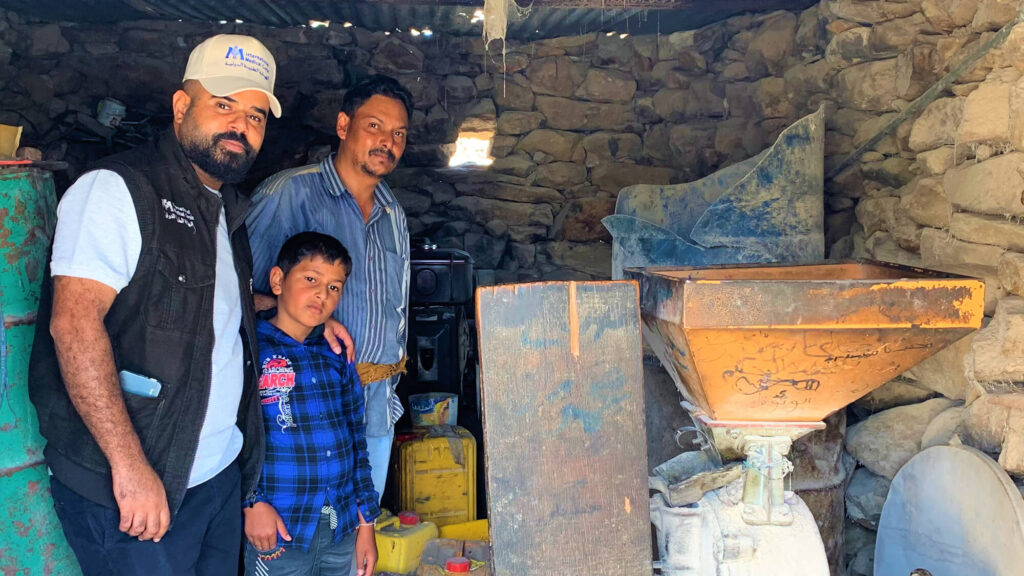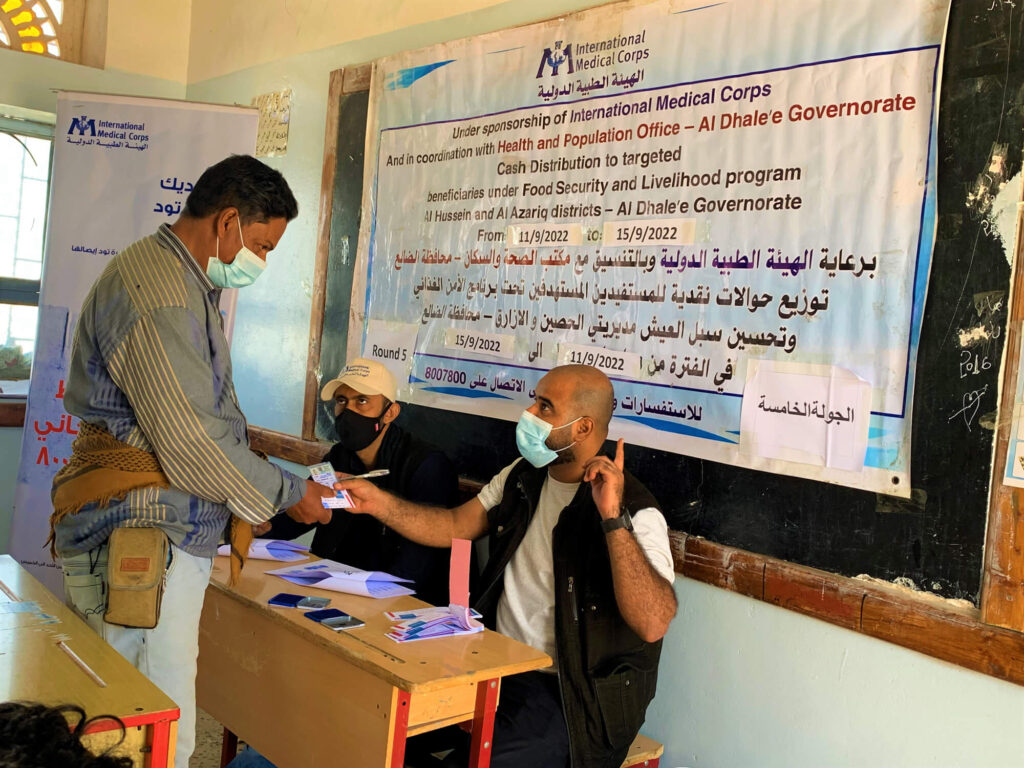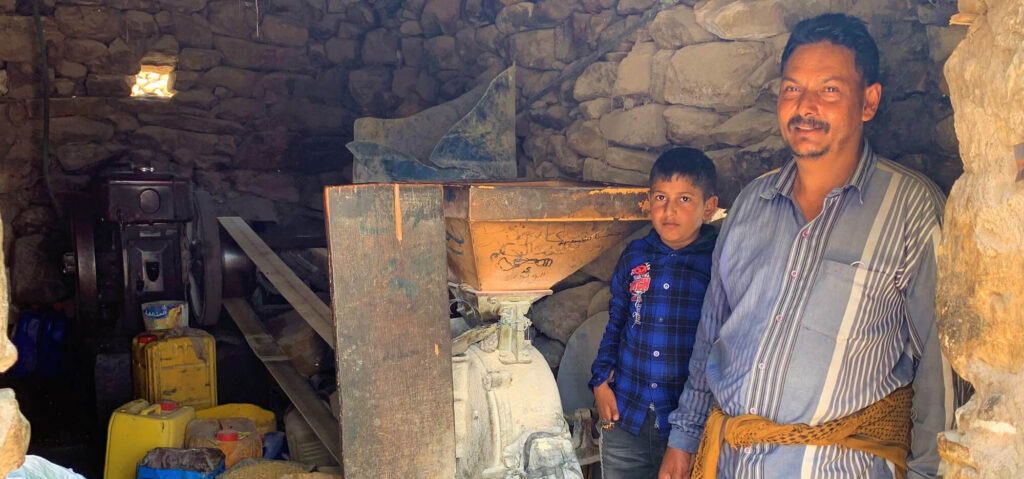Yemen has long been the poorest country in the Middle East and North Africa and is now in the midst of one of the world’s worst humanitarian crises. Embroiled in conflict since early 2015, fighting has devastated its economy, leading to severe food insecurity and the destruction of critical infrastructure. The UN estimated that 24.1 million people in 2021 were at risk of hunger and disease, and roughly 14 million were in acute need of assistance.
In Al-Fuqaha village at the highest peak of Hareer sub-district in Al-Dhale’e, 47-year-old Nasir lives with his wife, his sister and his three children: Mohammed, 10, Sabreen, 5, and Nora, 2. Nasir inherited a mill from his father—the only one in his village—which was his only source of income to provide for his family’s food needs and cover other medical and education requirements.
With the outbreak of the war, conditions began to gradually deteriorate, and Nasir was one of those who suffered greatly because of the bad economic situation. The work in his mill decreased until he found himself without enough money to buy fuel to run the mill or conduct maintenance—which finally led him to close it. After becoming jobless, he spent all his savings trying to make sure his family had enough to eat.
To sustain his family, Nasir started working as day laborer, but what he earned from this work was not enough to cover his family’s needs, especially with steep increases in the price of food items. Nasir told us that there were days when he and his wife went to bed hungry to save a little food for their children.

During that period, his wife, Hana, was pregnant, and she gave birth to Nora. Nora was not in good health and was very weak and skinny. One day, Hana heard from some women in the village that Hareer Health Facility, which is supported by International Medical Corps, provides healthcare to mothers and children for free. Nasir took Hana and Nora to the health facility, where the health workers examined Nora and found that she was suffering from severe acute malnutrition (SAM). The health workers registered Nora in their SAM register book and issued her a card enabling her to receive nutrition supplies, including ready-to-use therapeutic food, every month.
A female International Medical Corps staff member later visited the family at home, where she asked to see Nora and take her mid-upper arm circumference, a measurement that determines whether a child is malnourished. The staff member asked Nasir some questions and told Nasir that he would begin to receive food assistance from International Medical Corps by way of cash transfers.
International Medical Corps’ Food Security and Livelihoods (FSL) program provides assistance in the form of unconditional cash transfers to food-insecure households where there are pregnant or lactating women, or where there are children under 5 who are registered at a local International Medical Corps-supported health facility as having severe or moderate acute malnutrition. This distribution of cash gives families the ability to purchase the food of their choice directly from local markets, which promotes dignity, enabling recipients to prioritize their own dietary needs and make choices to live active and productive lives. Following guidance from the UN Food Security and Agriculture Cluster, the cash project helps families with six rounds of cash for six months.

In September, during International Medical Corps’ fifth round of cash distribution, Nasir thanked a member of International Medical Corps’ staff and told him about the big changes that have taken place in his life since receiving the cash assistance. Nasir said that after he closed the mill, it was rare for him and his children to have three meals a day. But after he began receiving cash assistance, he could buy enough wheat flour, milk, vegetables and meat to feed his family: “Food was my biggest concern. I feel very comfortable and satisfied when I see the happiness of my children when they eat together, and I am able to provide them with enough food.”
Nasir also said that the cash assistance has enabled him to use the money he earned as a day laborer to repair his mill, which is now a permanent source of income. “I am happy to tell you that my mill is now ready to operate again after a long time of suspension,” Nasir told us.
“I am very grateful for International Medical Corps, because the cash I received helped me buy enough food for my family, and at the same time, it saved my source of income because I was about to sell the mill to buy food for my family,” Nasir said.
